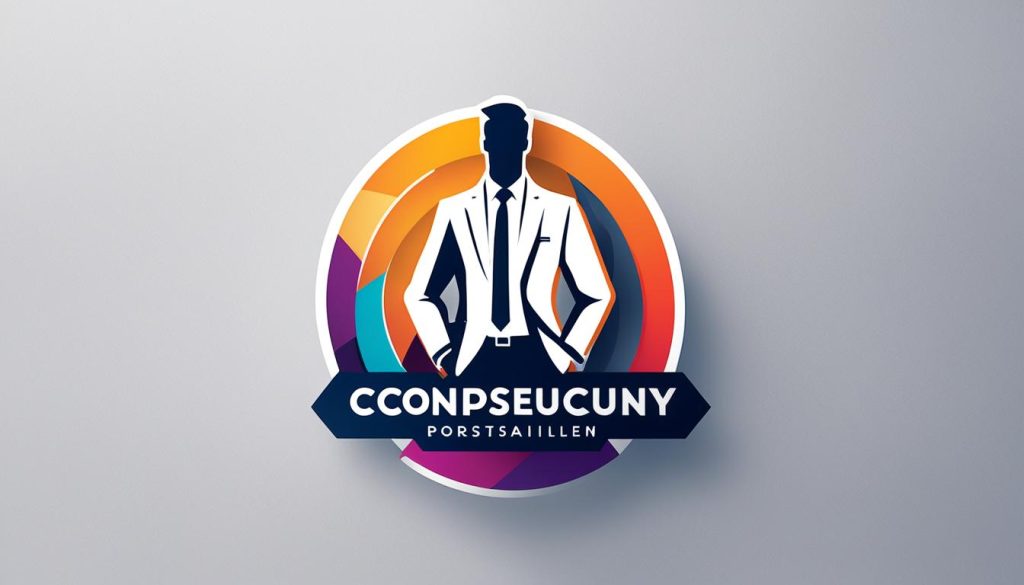“Opportunities don’t happen, you create them.” – Chris Grosser. This quote sums up the journey of starting a consultancy career in Italy. For those eager to make their mark in business advisory, Italy is a land of opportunities. The Italian economy is growing, creating a high demand for skilled business consultants across different sectors. This guide will help you understand how to become a successful business consultant in Italy, preparing you for its dynamic business world.
Key Takeaways
- Understanding the role and significance of business consultants in Italy.
- Essential skills needed to thrive in a consultancy career.
- Educational pathways and qualifications to become a business consultant.
- The importance of networking and gaining practical experience.
- Creating a strong personal brand as a consultant.
- Adapting to the cultural nuances of Italian business practices.
Understanding the Role of a Business Consultant

The role of a business consultant is diverse, covering many tasks aimed at boosting an organisation’s performance and efficiency. They provide services that match the specific needs of their clients. This includes strategic planning, managing operations, and offering financial advice.
Consultants do a variety of things, such as:
- Conducting thorough assessments of client operations
- Facilitating client meetings to understand specific challenges
- Performing detailed data analysis to identify opportunities for improvement
- Preparing comprehensive reports that present findings and recommendations
Tasks can change based on the client and project. Yet, a successful consultant must be good at changing strategies to tackle different business issues. This skill is key to delivering effective consultancy services that lead to results and support long-term growth.
Essential Skills for Aspiring Business Consultants

To be a top business consultant, you need a strong set of skills. Analytical skills are key as they help break down complex problems into manageable parts. Being good at solving problems is vital for tackling the issues clients have.
Being able to quickly spot problems and offer solutions is what makes a project succeed. A consultant’s quick thinking and ability to act can make all the difference.
Good communication is also crucial for sharing insights and advice. It’s important to explain ideas clearly and in a way that everyone can understand. This helps build trust with clients and improves teamwork.
Having great people skills is just as important. It lets consultants connect with clients and build strong relationships. These skills help in creating a positive working environment.
With the business world always changing, being adaptable is a must. Consultants need to know about different industries and tailor their advice to each client’s needs. Keeping up with new trends and practices is key to growing in this field.
Having a broad range of skills sets aspiring consultants up for success. It’s all about being ready to learn and improve continuously.
Educational Pathways to Becoming a Business Consultant

Those looking to become business consultants need a strong educational background. They start by getting relevant degrees and professional qualifications. These steps are key to a successful career in consultancy. They boost an individual’s skills and make them more attractive to employers in the fast-changing business world.
Relevant Degrees and Qualifications
People wanting to work in consultancy should look at degrees in:
- Business Administration
- Management
- Economics
These subjects give the basic knowledge needed for solving business problems. Getting professional qualifications from well-known bodies like the International Institute of Business Analysis or the Project Management Institute is also a big plus. These qualifications prove a high level of skill that clients look for in consultants.
Importance of Continuous Professional Development
In the competitive consultancy world, always learning is crucial. Taking part in workshops, seminars, online courses, and getting certifications keeps consultants up-to-date with industry trends and methods.
- Going to industry conferences
- Joining webinars on consultancy topics
- Signing up for business consultancy training
Being in professional groups and networks also helps with ongoing learning. These networks provide updates on the latest practices and new ways of doing things. This keeps the consultant’s skills sharp and ready for the ever-changing market.
Gaining Practical Experience in Consulting

Getting practical experience is key for those wanting to get into consulting. Taking on internships or entry-level jobs helps you learn important skills. It also lets you see what the industry is like. These roles are a great start for a career in consulting.
Internships and Entry-Level Positions
Internships in consulting give you a close look at how firms work. You get to work with experienced professionals and make industry contacts. Entry-level jobs need you to be proactive. You’ll work on real projects and improve your analytical skills.
Here are the perks of doing internships and entry-level jobs:
- Boost your resume with relevant experience.
- Learn practical skills that employers want.
- Discover the different areas of consulting.
- Make professional connections that could lead to jobs later.
Networking Opportunities in the Industry
Networking is crucial for a successful consulting career. Meeting people in your field can lead to new chances and partnerships. Going to industry events, joining online groups, and using LinkedIn helps build a strong network. Here are tips for networking well:
- Go to events for your industry to meet people and learn from them.
- Use social media to connect with consultants and leaders.
- Be part of professional groups to get noticed and reach more people.
- Keep up with your contacts by staying in touch and participating in discussions.
Setting Up as a Business Consultant in Italy

Starting a consultancy in Italy means picking the right legal structure. You can choose from sole proprietorships, partnerships, or limited companies. Each has its own benefits and challenges. It’s key to know how each affects taxes and liability to make a smart choice.
Choosing the Right Legal Structure
Think about these points when picking a legal structure for your consultancy:
- Sole Proprietorship: This is the simplest form, giving you full control; but, your personal assets could be at risk if the business has debts.
- Partnership: Working with others means sharing the work and risks. But, it can make decisions harder and affect who is liable.
- Limited Company: This protects your personal assets and might offer tax benefits. But, it means following more rules.
Registering your business in Italy involves getting licences, registering for taxes, and following business laws. Working with a local expert who knows about consulting rules can make this easier.
Understanding Local Regulations and Compliance
As a business consultant in Italy, you must follow local rules. It’s important to know about:
- Tax rules, making sure you report and pay correctly.
- Employment laws, if you plan to hire staff or contractors.
- Data protection laws, like GDPR, to keep client info safe.
Following these rules is key to avoiding legal problems. Talking to a lawyer can help you understand Italian business laws. This way, your consultancy can run well and succeed.
Building a Strong Consultancy Brand

Creating a strong brand identity is key for consultants wanting to stand out. It’s about the look, like logos and colours, and the messages that show off your skills and value. This helps attract potential clients.
Here are the main parts of a successful consultancy brand:
- Clear Messaging: Make sure you have a clear message that shows what makes you different. This helps you stand out in the market.
- Visual Branding: Spend on good design for your logo and materials that speak to your audience. Being consistent helps build a strong brand.
- Client Testimonials: Show off what happy clients say about you. This builds trust and can sway potential customers.
- Online Presence: Have a professional website and active social media that shows off your brand’s values and skills. These are key for reaching out and connecting with clients.
Stand out by showing off your special skills that match what the market wants. A brand that speaks to your audience can make you known for top-notch consultancy services.
Marketing Your Consultancy Services Effectively

In the world of consultancy, having a strong marketing plan is key to drawing in clients. Good marketing not only makes your consultancy more visible but also helps you connect deeply with clients. Using digital marketing can really boost your online presence.
Utilising Digital Marketing Strategies
Starting with a professional website is crucial for your online image. A good website acts as a portfolio, showing off your services and building trust. Writing blogs and articles about your area of expertise makes you a thought leader. Using SEO ensures people can find your site easily.
Email marketing is great for keeping in touch with clients. Sending regular newsletters with updates and insights keeps your audience interested. It also shows how versatile your consultancy is.
Leveraging Social Media for Visibility
Social media is a powerful tool for reaching clients. You can use LinkedIn, Twitter, and Facebook to share useful content and promote your services. Each platform has its own benefits; LinkedIn is great for professional networking, and Twitter is good for sharing quick updates.
To engage with your audience, quickly reply to comments, share industry news, and host live Q&A sessions. Having a strong social media presence not only makes your consultancy more visible but also builds trust. This encourages potential clients to contact you for your services.
Navigating Cultural Differences in Italian Business

For those aiming to excel in consulting, grasping the subtleties of Italian business culture is crucial. Italian business etiquette is key to building strong relationships and trust. It’s vital to be sensitive to local customs and traditions when working with clients. Knowing how to communicate and interact properly makes negotiations and collaborations run smoothly.
Understanding Italian Business Etiquette
In Italy, the role of business etiquette is huge. Greeting with warmth and formality is important for a good start in professional meetings. Key points include:
- Using formal titles and surnames until told to use first names
- Maintaining eye contact to show honesty
- Being on time, even if meetings might start late
Respecting these rules helps consultants move through the Italian business world with ease.
Adapting Consulting Practices for Different Regions
Italy shows a wide variety in consulting styles across regions. The North, like Lombardy and Veneto, values efficiency and new ideas. The South, including Sicily and Calabria, stresses personal connections and trust. Consultants should:
- Use consulting methods that fit local business views
- Adjust how they communicate to suit regional tastes
- Focus on building relationships in the South, where meals are key to business
Knowing these regional differences can make a consultant more effective and boost client happiness across Italy.
The Importance of Networking in Italy

Starting a consultancy in Italy relies a lot on networking. Building strong business relationships is key to success. It helps consultants stand out in a crowded market.
It’s vital to connect with other professionals and potential clients. Networking can open doors to great referrals and partnerships. These chances might not come from just marketing.
Here are some tips to improve your networking in Italy:
- Go to industry events to meet others and share knowledge.
- Join local business groups for more chances to be seen.
- Be active in community events to make work and personal connections.
- Use online platforms like LinkedIn to connect with leaders in your field.
These steps help build business relationships and a supportive network. Highlighting the value of networking can greatly boost your career in Italy.
Understanding Industry Trends in Italy

Italy’s consultancy scene is changing fast, thanks to new trends. These trends give future consultants a peek into where the big opportunities are. They show which areas are getting more clients who need expert advice.
Key Sectors for Business Consulting Opportunities
Some consultancy areas in Italy are growing fast, offering great chances for those in the field.
- Technology: New tech is moving fast, making it crucial to have fresh solutions. Experts in digital changes, software making, and IT planning are in demand.
- Healthcare: The healthcare system is changing, needing consultants who can deal with new rules, make things run better, and use health IT.
- Sustainable Business Practices: With a focus on being green, there’s a big need for consultants who can help businesses grow in a way that’s good for the planet.
By staying updated with these trends, new consultants in Italy can spot the best sectors to work in. They can also meet the market’s specific needs.
Establishing Client Relationships

Building strong client relationships is key to a consultancy’s success. Good communication is vital in this process. It helps in understanding and working together, setting the stage for successful partnerships.
Effective Communication Techniques
Using different communication methods is crucial for a positive consultancy relationship. Important techniques include:
- Active Listening: Really listening to clients helps open up conversation.
- Empathetic Engagement: Showing real care for clients’ problems builds trust.
- Regular Follow-Ups: Keeping in touch shows you care and value their concerns.
Building Trust with Clients
Trust is key to lasting consultancy relationships. Being credible is important for trust. Here are some ways to build trust:
- Always meeting or beating clients’ expectations.
- Being open in all talks to build confidence.
- Keeping secrets, which shows you protect their interests.
Trust leads to lasting relationships, which are good for business. Clients often come back and recommend others when they trust you. This shows how crucial trust is in consultancy work.
Overcoming Challenges as a Business Consultant in Italy
Being a business consultant in Italy comes with its own set of challenges. You have to deal with complex rules and cultural norms. Italy’s laws and practices can be tough for newcomers to grasp, making it hard to follow the rules and succeed. Also, consultants must adjust to regional differences that affect how clients act and do business.
To overcome these hurdles, adopting smart consulting strategies is key. Being resilient helps consultants stay on track, even when things get tough. It’s also vital to find mentors and build a support network. Experienced professionals can offer valuable advice and help you navigate the challenges better.
Staying positive is crucial, especially with lots of competition in the market. By keeping focused on your goals and improving your strategies, you can turn challenges into chances for growth. Mixing practical skills with a proactive mindset will help you succeed in Italy’s unique business world.









